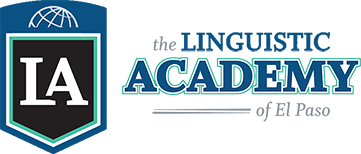The TELPAS and STAAR/STAAR EOC assessments are required by state and federal law. Students usually take these tests during the second semester. For exact dates, see the Texas Education Agency’s testing calendar. For other kinds of assessments used, see the assessment strategy.
TELPAS
Texas English Language Proficiency Assessment System (TELPAS) is designed to assess the progress that ELLs make in listening, speaking, reading, and writing the English language. For ELLs in all grades offered at Da Vinci, the test includes computer-based reading, listening, and speaking tests, and holistically rated student writing collections. The assessment is required at the federal level for ELLs in all grades. In addition, the reading assessment is required at the state level for ELLs in grades 2-12. Assessments take place in the spring. Results are distributed to parents. For more information, see the Texas Education Agency’s TELPAS Resources page.STAAR/STAAR EOC
The State of Texas Assessments of Academic Readiness (STAAR) is designed to assess the extent to which students have learned or are able to apply the knowledge and skills defined in the state-mandated curriculum standards, the Texas Essential Knowledge and Skills (TEKS). Each question is aligned to at least one curriculum standard. STAAR tests can also include STAAR A/STAAR Alternate (accommodated). Tests cover math, reading, writing, and science and are administered in the spring. Math and reading assessments are administered to all students in grades 6-8, the writing assessment is administered to all students in grade 7, and the science assessment is administered to all students in grade 8.In high school, students take STAAR End-Of-Course (EOC) exams for Algebra I and II, English I through III, Biology, and U.S. History. The exams for Algebra I, English I, English II, and Biology are required by state and federal law. The U.S. History exam is required by state law. English III and Algebra II end-of-course exams are required locally.
Results are distributed to parents. Retests are administered throughout the year. For more information, see the Texas Education Agency’s STAAR Resources page.
Assessment Strategies
At Da Vinci, a variety of assessment strategies are implemented to ensure a high-quality education. Our strategies include, but not limited to:- DMAC: DMAC (Data Management Assessment and Curriculum) is used to dissect data to address the learning needs of our students. Data is collected throughout the year for continuous improvement. The data is based on district and state assessment instruments. This includes benchmarks, STAAR/EOC, TELPAS, and others. This strategy helps in targeting areas of need and highlighting areas of growth.
- AP Exams: Prior AP exams are used as pre- and post-tests for students’ data. This tool allows teachers to assess what the learner knows at the beginning and end. This helps measure the growth and target skills needed for AP exams.
- PLC Meetings: This time is allocated to teachers to share data and best practices. This allows teachers to continue learning from each other to maximize student learning within the academy as they collaboratively plan lessons and sharing ideas.
- SLO’s: Student Learning Objectives are designed to target specific student needs in the classroom throughout the year. This helps student growth and is focused on a foundational student skill, tailored to the context of individual students, and refine instruction.
- TSI: A program which determines the appropriate level of college course work for an incoming student. The TSI test consists of three separate exams: Mathematics, Reading, and Writing.
- Credit by Exam: Allows students in secondary academic courses to earn credit for a course on the basis of credit by examination. Credit-by-examination assessments (CBEs) must be approved by each local board of trustees.
- ACT: The ACT is the leading US college admissions test measuring what you learn in high school to determine your academic readiness for college. Staff prepare and assist students towards readying themselves to be successful on exam.
- SAT: The SAT assesses how well the test takers analyze and solve problems—skills they learned in school that they will need in college. Staff prepare and assist students towards readying themselves to be successful on exam.
- PSAT: A test that gauges mastery of skills that are measured on the SAT. Staff prepare and assist students towards readying themselves to be successful on exam.
- LAS/IOWA Test: Testing that gauges listening and speaking skills towards providing support for ELA students. Staff use the data to create a plan for individual students based on need.
- Benchmarking: Allows teachers to create a prescriptive plan for student/class instruction.
- Formative and Summative Classroom Assessments: Allows teachers to create a prescriptive plan for student/class instruction/Teacher growth.




